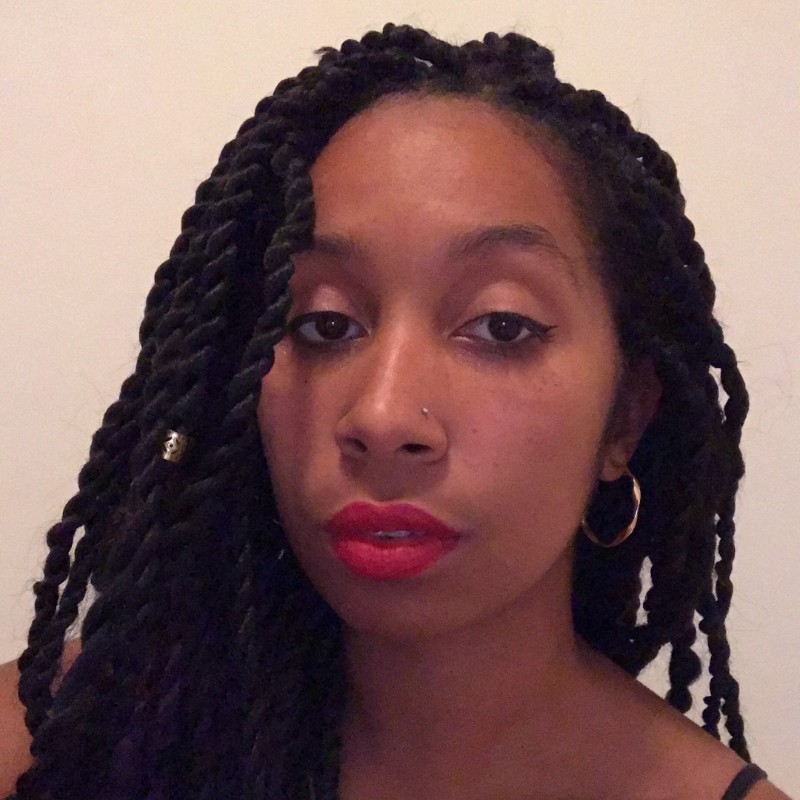I first heard about Sandra Bland when I saw her mugshot circulating on Twitter. A Black woman with a strained expression, she looked as if she’d been crying. Her eyes were vacant, resting on something just beyond the camera lens. An image of a person disengaged and distressed. Some speculated that she was already dead in the picture; I have trouble looking at it to this day. Bland was arrested over a routine traffic stop and was found unresponsive in her jail cell three days later. The official autopsy ruled her death as a suicide by asphyxiation; the Black community concludes otherwise.
Although we don’t hear about all of them, every day there is a new story. Lauren Smith-Fields went on a Bumble date and wound up dead; Breonna Taylor was shot through the head as she slept; Cashay Henderson became the third Black transgender woman to be murdered in Milwaukee in the last year. In the UK, where I’m from, the issue persists. Sisters Bibaa Henry and Nicole Smallman were stabbed to death in a park –– the police took photos of their dead bodies and shared them on WhatsApp. When Sarah Everard went missing, her disappearance made front-page news. Blessing Olusegun mysteriously died weeks later; the police investigation into her death was critiqued for being subpar. It’s just another reminder: white women hold value, we do not.
Perhaps the most contentious example of this was the recent murder of 16-year-old Brianna Ghey, a white transgender girl from Cheshire, England. Ghey was killed by two fellow teenagers and the news of her death was picked up by publications across the UK. Many purposefully used her dead name –– the former name of a transgender person, usually assigned at birth, that they no longer use. As a result, social media users took to Twitter to protest this behaviour. The hashtag #SayHerName circulated as a way to honour Ghey and defy such a blatant act of transphobia. Many Black women, in the US in particular, found this offensive. This is because the hashtag has often been used to garner attention for the unlawful killings of Black women and Black trans women.
“They really love to reduce and diminish Black activism to defend the appropriation of it for their benefit,” one user wrote on Twitter.
In this instance, I felt conflicted. Ghey deserved to be respected, both in life and in death. If the hashtag brought peace to her family and showed resilience in the face of transphobia, then why not use it? On the other hand, there is always this unspoken expectation that Black women should know their place at the bottom of the food chain. Famous Civil Rights Activist Malcolm X once said: “The most disrespected person in America is the Black woman.” Oftentimes, I feel like that statement extends across the entire planet. We are paid the least; we’re more likely to die during childbirth; we’re seen as the least attractive on dating apps; we’re stereotyped as lazy, belligerent, uneducated. Even our names are a seen as a reason to gatekeep. We are separate, never equal.
Since the dawn of time, our voices and opinions have routinely been quashed. Yet, society wouldn’t function without us. We have been the “help,” nursing children who aren’t ours into adulthood. We have led all-female armies, fortifying entire villages against attacks. We have been sisters of the revolution, wearing our afros with pride in our fight for social justice as members of the Black Panther Party. We have won Oscars, set World Records, nursed war soldiers back to health. Our living cells, used long after we’re gone, continue to play a seminal role in humanity’s battle against cancer.
Black women really are magic. I am proud to identify as one but I carry a collective wound. One that festers and rots away at my core. The ever-bleeding burden of feeling that I will never be enough. As many Black women before me, and, I imagine, as many will do after me, I use my voice to soothe my suffering. When voices unite, they amplify. The internet can be a divisive place, but in recent times, online spaces have opened up for Black women to connect and share their stories. Black Girl in Om is a virtual community that aims to support women of colour across the diaspora in pursuit of better individual and collective wellbeing, with an agenda to heal generational trauma. Black Women Radicals has created a database to document Black female activists of past and present. The initiative also hosts monthly community-based events, where those outside the US can join via livestream. Communities are cropping up everywhere to allow Black women to share their struggles and successes. Essentially, sisters are doing it for themselves –– and for each other.
It’s important that we share our stories as Black women because words are the sutures that hold us together, despite the fact that society routinely tries to pick us apart. They were Harriet Tubman’s means of inciting escape during the slave trade; they were Chimamanda Ngozi Adichie’s way of introducing intersectional feminist principles to a new generation; they were Michelle Obama’s rallying cry to the next leaders of the world. They are our form of education, protest, and comfort. So, I will continue to use words in spaces where my silence is expected. Utter them from my mouth and let them flow from my fingers. A well of empowering messages yet to be sent that I’m equipped to deliver because I am a Black woman, phenomenally.




